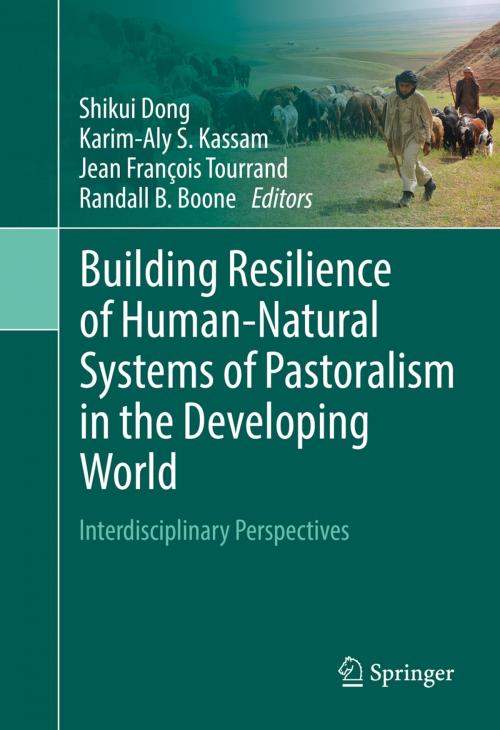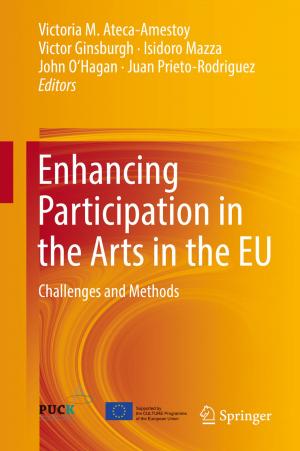Building Resilience of Human-Natural Systems of Pastoralism in the Developing World
Interdisciplinary Perspectives
Nonfiction, Science & Nature, Science, Biological Sciences, Ecology, Environmental Science| Author: | ISBN: | 9783319307329 | |
| Publisher: | Springer International Publishing | Publication: | August 30, 2016 |
| Imprint: | Springer | Language: | English |
| Author: | |
| ISBN: | 9783319307329 |
| Publisher: | Springer International Publishing |
| Publication: | August 30, 2016 |
| Imprint: | Springer |
| Language: | English |
This edited volume summarizes information about the situational context, threats, problems, challenges and solutions for sustainable pastoralism at a global scale. The book has four goals. The first goal is to summarize the information about the history, distribution and patterns of pastoralism and to identify the importance of pastoralism from social, economic and environmental perspectives. The results of an empirical investigation of the environmental and socio-economic implications of pastoralism in representative pastoral regions in the world are also incorporated.
The second goal is to argue that breaking coupled human-natural systems of pastoralism leads to degradation of pastoral ecosystems and to create an analysis framework to assess the vulnerability of worldwide pastoralism. Our analysis framework provides approaches to help comprehensively understand the transitions and the impacts of human-natural systems in the pastoral regions in the world.
The third goal is to identify the successful models in promoting coupled human-natural systems of pastoralism, and to learn lessons of breaking coupled human-cultural pastoralism systems through examining the representative cases in regions including Central Asia, Southern and Eastern Asia, Northern and Eastern Africa, the European Alps and South America.
The fourth goal is to identify the strategies to build the resilience of the coupled human-natural systems of pastoralism worldwide. We hope that our book can facilitate the further examination of sustainable development of coupled human-natural systems of pastoralism by providing the summaries of existing data and information related to the pastoralism development, and by offering a framework for better understanding and analysis of their social, economic and environmental implications.
This edited volume summarizes information about the situational context, threats, problems, challenges and solutions for sustainable pastoralism at a global scale. The book has four goals. The first goal is to summarize the information about the history, distribution and patterns of pastoralism and to identify the importance of pastoralism from social, economic and environmental perspectives. The results of an empirical investigation of the environmental and socio-economic implications of pastoralism in representative pastoral regions in the world are also incorporated.
The second goal is to argue that breaking coupled human-natural systems of pastoralism leads to degradation of pastoral ecosystems and to create an analysis framework to assess the vulnerability of worldwide pastoralism. Our analysis framework provides approaches to help comprehensively understand the transitions and the impacts of human-natural systems in the pastoral regions in the world.
The third goal is to identify the successful models in promoting coupled human-natural systems of pastoralism, and to learn lessons of breaking coupled human-cultural pastoralism systems through examining the representative cases in regions including Central Asia, Southern and Eastern Asia, Northern and Eastern Africa, the European Alps and South America.
The fourth goal is to identify the strategies to build the resilience of the coupled human-natural systems of pastoralism worldwide. We hope that our book can facilitate the further examination of sustainable development of coupled human-natural systems of pastoralism by providing the summaries of existing data and information related to the pastoralism development, and by offering a framework for better understanding and analysis of their social, economic and environmental implications.















